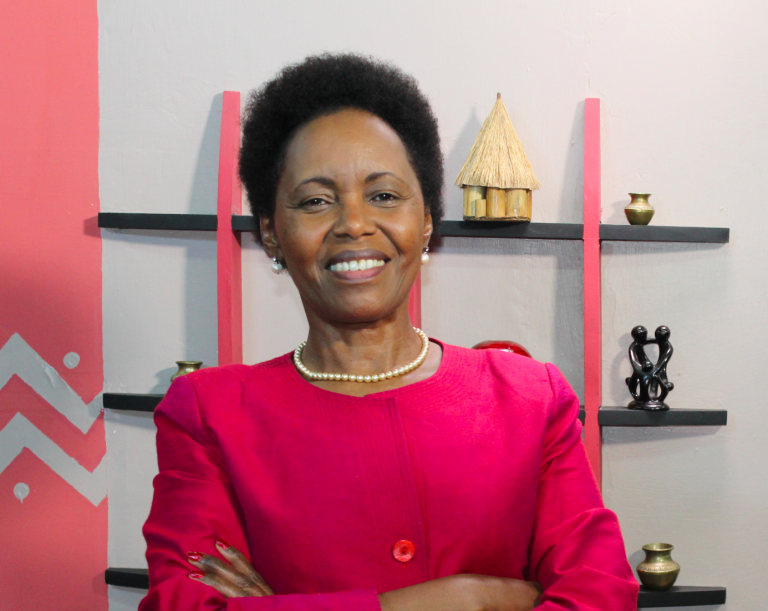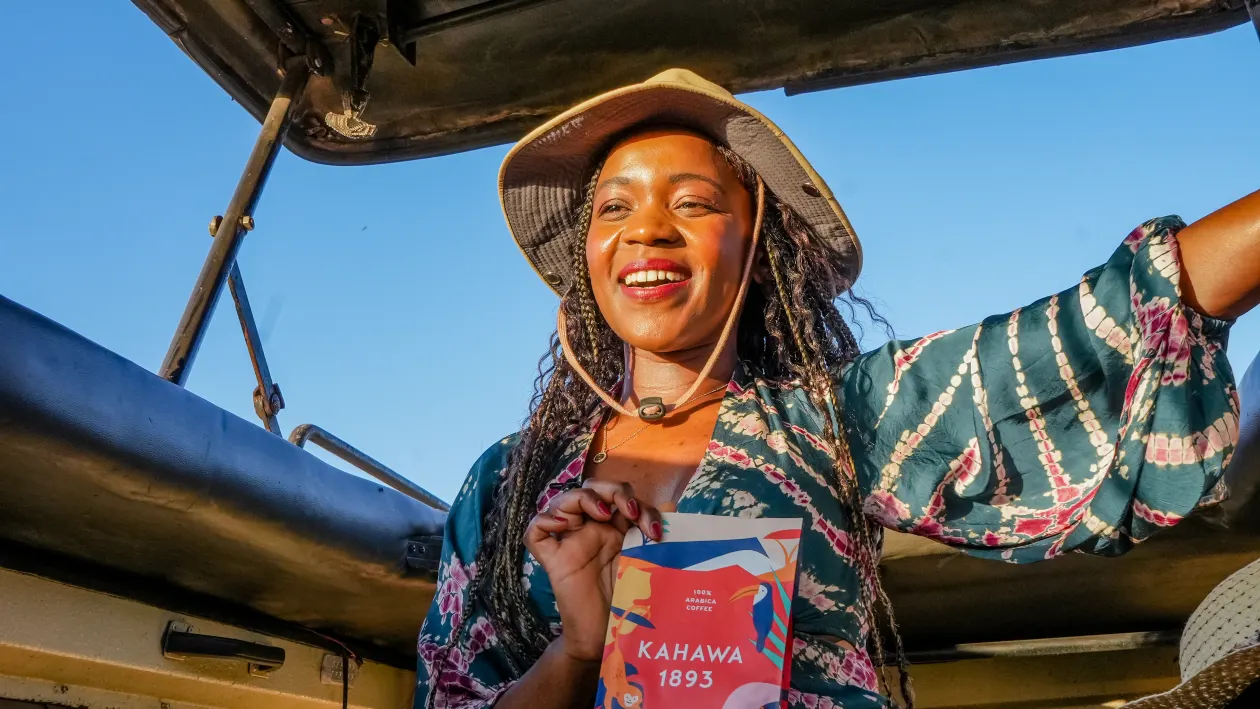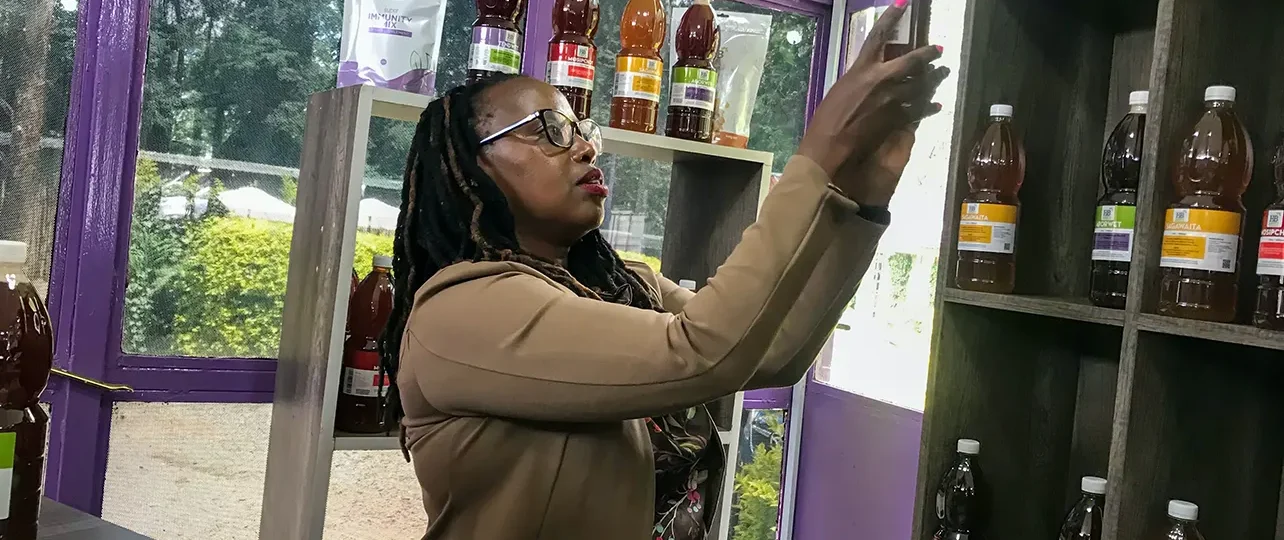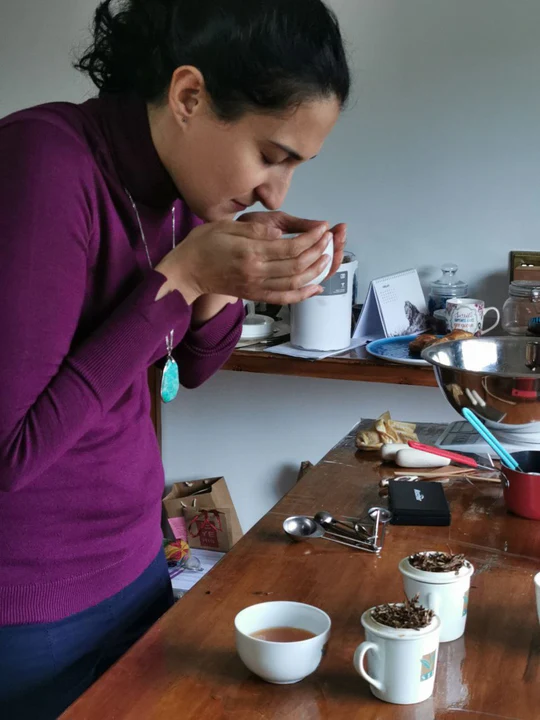She Business
Rose Kimotho: A Trailblazer for the Voices of the Unheard
Rose W Kimotho’s story is not just one of business success but of empowerment, resilience, and unshakable belief in the power of community.

:Discover the inspiring journey of Rose Kimotho, a visionary media entrepreneur who founded Kameme FM, 3 Stone TV, and Kayu FM. Learn how she empowers marginalized communities and amplifies unheard voices, transforming the media landscape in Kenya with her commitment to social impact and community engagement
By Charles Wachira
In the vibrant landscape of Kenya’s media industry, few names resonate as powerfully as that of 68-year-old Rose Wairimu Kimotho. Her journey, marked by unwavering tenacity, strategic foresight, and an unrelenting commitment to empower marginalized voices, has positioned her as a beacon of inspiration. Kimotho’s rise to success was anything but easy—her ability to overcome challenges, including predatory forces keen on taking over her businesses, makes her story one of remarkable resilience.
A Visionary Entrepreneur
Rose Kimotho’s entrepreneurial journey began in 2001 when she founded Kameme FM, a groundbreaking radio station broadcasting in Kikuyu.
Kameme FM quickly became a household name, tackling local issues and creating a platform for previously unheard voices.
However, success came with its own set of challenges.
A contentious partnership eventually led to the loss of control of Kameme FM, a bitter setback that taught her the crucial importance of strategic alliances.
Reflecting on this period, she shared, “In business, you must know when to compromise and when to stand firm. Trust your instincts, but always protect your interests.”
In 2007, determined not to be defined by past misfortunes, she launched 3 Stone TV, aimed at amplifying marginalized voices.
Despite a visionary approach, the station faced significant financial constraints and fierce competition, forcing its closure. But Rose wasn’t done—far from it.
By 2022, Kimotho was back with a new venture: Kayu FM, a station for the “hustlers”—the unsung heroes who wake before dawn to make a living.
The station’s moniker, “Utagata Kuri Wee,” reflects its ethos, translating to “It’s You Who Knows.” Kayu FM 91.0 has quickly gained traction, giving a voice to the hawkers, market traders, and laborers who form the backbone of Kenya’s informal economy. Today, Kayu FM represents not just a radio station, but a movement celebrating Kenya’s resilient spirit.
The Struggle Against Predatory Forces
Throughout her journey, Kimotho has had to fend off predatory forces aiming to exploit her business successes. Following the loss of Kameme FM, offers to buy her ventures came thick and fast, but Kimotho stood firm.
“People saw me as vulnerable, but they underestimated my resolve,” she recalls. “My mission was never just about profits—it was about giving a platform to the voiceless.”
Instead of succumbing, she fought back, strategically repositioning herself and creating opportunities for reinvestment. Her fierce independence is perhaps one of her greatest attributes, allowing her to remain in control of her media empire.
The Birth of Kayu FM
This morning, I had the privilege of visiting Kayu FM. As I entered the bustling studio, I was immediately struck by the palpable energy—a hub of creativity, driven by young people eager to share their stories. Kimotho’s sharp instinct for capturing societal shifts before they become mainstream is evident here.
Kayu FM resonates with the working-class, from hawkers waking at 1 AM to secure goods at Wakulima Market, to boda-boda riders navigating the streets of Nairobi. It’s a platform that celebrates grit, hard work, and ambition.
Factors Behind Her Success
Kimotho’s entrepreneurial success is a testament to a combination of vision, resilience, and adaptability.
Visionary Leadership
Rose Kimotho’s ability to anticipate trends and market needs sets her apart.
“You must always be two steps ahead,” she often advises.
Her keen sense for identifying gaps in Kenya’s media landscape, and addressing those with innovative solutions, has kept her relevant.
Strong Community Engagement
Her deep understanding of the communities she serves has shaped her content.
By engaging directly with her audiences, she crafts media that resonates with their lives.
“A good leader listens first. Only then can you serve,” Kimotho explains. She has built trust at the grassroots level, resulting in a loyal listener base that sees themselves reflected in her platforms.
Innovation and Adaptability
Recognizing the digital shift, Kimotho has embraced new media formats. From podcasts to TikTok, Kayu FM’s young creators are now sharing their stories across digital landscapes, ensuring the station remains in tune with modern audiences.
Resilience and Determination
Rose Kimotho has faced formidable hurdles—from intense market competition to navigating regulatory constraints—but her unyielding resilience has kept her going.
“Every challenge is a lesson,” she notes. “You either grow from it or let it break you.” Each setback was used as a stepping stone to refine her business strategies.
Strong Networks and Mentorship
Kimotho has nurtured strong relationships within the media industry and beyond. Her expansive network has offered her invaluable insights and opportunities, while her role as a mentor has allowed her to give back, helping the next generation of media professionals.
Passion for Storytelling
Authentic storytelling is at the heart of everything Kimotho does. Her ability to craft narratives that resonate with Kenyan culture has solidified her platforms not only as sources of information but as cultural touchstones that celebrate Kenyan identity.
Commitment to Social Impact
Kimotho’s belief that every story deserves to be told underpins all her ventures. “Our society is full of unheard voices,” she reflects.
“It’s our duty to give them a platform.”
By fostering opportunities for young creators and ensuring her content is community-focused, she is driving both social and economic impact.
An Eye-Opening Experience
My time at Kayu FM was truly inspiring. The energy, passion, and sense of purpose permeating the station speak volumes of Kimotho’s ability to tap into the pulse of society.
She has created a space where Kenya’s youth can express themselves authentically and connect with broader audiences through storytelling.
A Legacy of Inspiration
Reflecting on Rose Kimotho’s incredible journey, one thing is clear: her story is not just one of business success, but of empowerment, resilience, and unshakable belief in the power of community. “Success is not about avoiding failure—it’s about learning to rise each time you fall,” she says, with the confidence of someone who has lived those words.
Kimotho’s media ventures, from Kameme FM to Kayu FM, have transformed how Kenyan stories are told, and her legacy is one of empowerment and innovation.
With every new platform she builds, Rose Kimotho reminds us that every voice matters—and every story deserves to be told.
Her continued success can be attributed to visionary leadership, community engagement, adaptability, and an unwavering commitment to empowering the marginalized.
She has shown that success, in both media and business, requires resilience, a passion for impact, and the courage to fight for your vision when others try to take it from you.
With a keen eye on the future, Rose Kimotho’s story is far from over—it’s just beginning.
Keywords:Rose Kimotho entrepreneurial success:Kenya media industry innovation:Kayu FM grassroots engagement:Empowering marginalized voices:Resilience in business challenges
She Business
How Margaret Nyamumbo Built Kahawa 1893 from the Ground Up

: Discover Margaret Nyamumbo’s journey from Kenya to the U.S. and how she
built Kahawa 1893 to empower women coffee farmers, achieving business
success and social impact
Early Life and Education: Pursuing Global Opportunities
Margaret Nyamumbo’s entrepreneurial journey began in Kenya, where she grew up on a coffee
farm. However, she moved to the U.S., a decision that significantly shaped her path.
In 2000, she travelled to Smith College, a prestigious liberal arts institution in Massachusetts,
to study economics.
Her desire to study abroad stemmed from the limited educational opportunities available for
women in Kenya at the time. As she later explained, her family encouraged her decision, viewing it as a way to give her the best opportunities for success.

After earning her degree from Smith College, Nyamumbo pursued an MBA at the Wharton
School of the University of Pennsylvania, known for its rigorous business programs.
This solidified her foundation for a future in business, although it was the allure of her roots and a passion for coffee that eventually led her back to entrepreneurship.
From Corporate Work to Entrepreneurship: Embracing Coffee Culture
After completing her studies, Nyamumbo worked in investment banking and consulting, but the world of corporate finance didn’t fully satisfy her ambitions.
It was her return to the coffee industry, deeply connected to her Kenyan heritage, that drove
her entrepreneurial leap. With a vision to support East African coffee farmers, particularly women, Nyamumbo founded Kahawa 1893 in 2018, a coffee brand dedicated to highlighting Kenya’s coffee culture while mpowering local farmers.
The name “Kahawa” is the Swahili word for coffee, while “1893” marks the year when coffee
was first commercially grown in Kenya, grounding her brand in historical significance.
Through Kahawa 1893, Nyamumbo aimed to bring a new approach to the coffee business, one
that not only celebrated East African coffee but also created fair wages for farmers.
Building a Brand with Purpose: Empowering Farmers
Nyamumbo’s vision for Kahawa 1893 went beyond just selling coffee.
She wanted to create a direct impact on the lives of the farmers growing the coffee beans.
The brand’s model incorporated a system where customers could tip the farmers directly via a
QR code found on the coffee bags.
This innovation set the company apart from competitors and positioned it as a socially
responsible business that directly benefited those involved in the production process.
In 2021, Kahawa 1893 hit a major milestone, getting its coffee stocked in Trader Joe’s—the
first Black- and woman-owned coffee brand to be featured there.
This breakthrough moment was significant for Nyamumbo, marking the recognition of her hard work and her commitment to uplifting local farmers.
Overcoming Challenges: What It Takes to Succeed
Despite the challenges of entering a highly competitive market, Nyamumbo’s determination
never wavered. In a 2022 interview with Forbes, she shared her thoughts on what it takes to be a successful entrepreneur.
“You have to be able to take the punches and keep moving,” she said. Her advice reflects the
reality of entrepreneurship: persistence, resilience, and a willingness to learn from failure are
crucial for success.
Nyamumbo also emphasised the importance of passion. “You’ve got to love what you do, or you won’t have the energy to push through the tough times,” she said.
These values have guided her journey, driving Kahawa 1893 to not only succeed but also to
change the way the coffee industry operates, particularly about fair trade and community
empowerment.
The Future of Kahawa 1893: Expanding Horizons
With her success on platforms like Shark Tank and continued global distribution, Nyamumbo’s
Kahawa 1893 is poised for growth.

Her brand continues to expand its reach, and the emphasis on ethical sourcing, community
impact, and high-quality coffee will likely remain at the heart of her business model as she looks to further innovate in the global coffee market.
Through Kahawa 1893, Nyamumbo has shown that business success is not just about
profits—it’s about purpose, people, and passion.
She Business
Chebet Ng’ok: Founder of Harriet Botanicals, Empowering Wellness
Harriet Botanicals embodies Chebet Ng’ok’s mission to make indigenous wellness accessible to everyone. Her journey shows how personal struggles can spark entrepreneurial success. “I never imagined my pain would bring me here,” she reflects. “But now, I’m proud to help others live healthier, pain-free lives.” Chebet’s story is one of resilience, innovation, and staying connected to her heritage—valuable lessons for any aspiring entrepreneur.

Discover how Chebet Ng’ok’s Harriet Botanicals uses indigenous herbs to transform reproductive health, helping women and men live pain-free, healthy lives.
Chebet Ng’ok, the Founder and CEO of Harriet Botanicals, took a deeply personal challenge and turned it into a thriving business, bringing indigenous Kenyan remedies to the forefront of the wellness industry.
What started as a search for relief from severe menstrual pain led Chebet to discover the healing power of local herbs.
Today, her company is empowering women and men alike through natural products while promoting better reproductive health.
From Financial Powerhouse to Entrepreneur
Chebet’s journey into entrepreneurship was far from typical.
A highly successful financial manager and consultant, she spent over 15 years living in London, where she obtained an LLB in Law with a concentration in Commercial Law from the London School of Economics and an LLM in International Banking and Finance.
Her illustrious career saw her work with some of the world’s largest financial institutions, including JPMorgan Chase, the UK Financial Services Authority, and Goldman Sachs. She even held positions as an independent consultant and an East Africa Partner at Dwyka Projects and Equinox Global Consultants.
However, behind her professional success, Chebet was grappling with debilitating menstrual pain that impacted her life and career.
“When I finished my education and started working, I had a serious challenge with my menstruation—a lot of pain, agony, painkillers, and frequent visits to doctors and gynecologists,” she explained in a 2021 interview. Desperate for relief, she tried everything from juice fasts and yoga to various painkillers, but nothing seemed to work.
Discovering Indigenous Remedies
It wasn’t until Chebet returned to Kenya that she discovered the transformative power of indigenous herbs.
Her journey into alternative medicine began with a recommendation from a family member.
A herbalist uncle from Webuye gave her a traditional remedy that, for the first time, alleviated some of her pain. Later, at her father’s funeral, a woman introduced her to Kipsigis herbs, which provided the first completely painless menstrual cycle Chebet had experienced in years.
This revelation inspired her to research further into indigenous remedies from the Keiyo, Marakwet, and Kipsigis communities.
“When I experienced a painless period for the first time in my life, I knew I had stumbled upon something truly powerful,” Chebet recalls. She began sharing the herbs with friends, one of whom was about to undergo a hysterectomy due to severe menstrual pain. The success stories spread quickly, with Chebet’s social circles buzzing about the benefits of these natural remedies.
Filling a Void in Kenya’s Wellness Market
Harriet Botanicals was officially launched in 2017 to formalize the distribution of these indigenous remedies, focusing initially on women’s reproductive health.
“We realized there was a huge gap in the market for locally sourced, natural solutions to common health issues like menstrual pain, infertility, and digestion challenges,” says Chebet.
As word of mouth spread and demand grew, Harriet Botanicals expanded its product line to cater to both men and women, offering remedies for issues like low libido and immune support.
Chebet made it her mission to ensure that these products were accessible to all Kenyans, opening outlets in major cities and towns across the country.
Overcoming Challenges and Building a Business
Starting Harriet Botanicals was not without its challenges. Despite her background in finance, Chebet faced an entirely new set of hurdles in the health and wellness sector.
“Convincing people to trust indigenous remedies was tough. Many believed that imported products were more effective,” she explained.
Funding was another major obstacle. Chebet initially relied on personal savings and small contributions from family and friends. She didn’t have access to large-scale investment, but through determination and a commitment to quality, Harriet Botanicals slowly gained a loyal customer base.
“I believed in the power of the product, and I knew that if we kept reinvesting back into the business, we could grow sustainably,” she said.
Lessons for Aspiring Entrepreneurs
Reflecting on her entrepreneurial journey, Chebet shares some valuable lessons for others looking to start their own businesses.
“First, you have to believe in your product. If you’re not convinced, no one else will be,” she advises. She also stresses the importance of resilience in the face of adversity.
“There were times I doubted whether this business could work, but I never gave up. You have to be prepared for setbacks and keep pushing forward.”
Chebet also emphasizes the need for market education.
“Our biggest challenge was getting people to trust natural, locally made remedies. But once we focused on educating consumers about the benefits of our products, we began to see a shift.”
Lastly, she advises entrepreneurs to start small and grow organically.
“You don’t need a lot of capital to start. What’s more important is that you have a clear vision and a product that people need.”
Voices of Beneficiaries
The impact of Harriet Botanicals has been far-reaching, with many customers sharing their stories of relief and improved well-being. Ann Wambui, a loyal customer, speaks about how the products have changed her life
: “I had severe menstrual cramps for years. Since using Harriet Botanicals’ products, I’ve experienced pain-free cycles and can finally go about my day without interruption.”
James Njoroge, who struggled with digestive issues, shares a similar experience:
“I started using their Moringa tea for digestion problems, and it’s been a game-changer. I feel healthier and more energetic.”
A Future Rooted in Wellness
Today, Harriet Botanicals stands as a testament to Chebet Ng’ok’s vision of making indigenous wellness solutions accessible to all.
As the company continues to expand its product range and reach, Chebet remains committed to her mission of promoting better health through the power of nature.
Her story is a powerful reminder of the potential for personal challenges to inspire entrepreneurial success. “I never thought my pain would lead me to this,” she says. “But now, I’m proud to be helping other people live healthier, pain-free lives.”
Chebet’s journey is one of resilience, innovation, and staying true to one’s roots—lessons that any entrepreneur can take to heart.
Keywords: Harriet Botanicals: Chebet Ng’ok: Indigenous remedies: Reproductive health: Natural wellness
She Business
Tehmeena Manji: Elevating Kenya’s Tea Industry with Passion
Tehmeena Manji’s journey with Muthaiga Tea Company is a powerful testament to how passion, education, and perseverance can make a meaningful impact on Kenya’s tea industry. Her dedication to quality and sustainability establishes a benchmark for others, inspiring the next wave of entrepreneurs in the nation. Through her innovative approaches, Tehmeena is not only influencing the future of tea in Kenya but also ensuring that the legacy of this essential industry continues to flourish.

Tehmeena Manji’s story is one of passion, determination, and a commitment to quality, perfectly illustrating the vibrant tapestry of Kenya’s tea industry.
As the founder of Muthaiga Tea Company, she has carved out a niche in the competitive tea market by combining her expertise with innovative practices.
Born in 1989 in Nairobi, Tehmeena’s fascination with tea began at a young age, evolving from a curious child to a renowned tea sommelier and entrepreneur.
Educational Foundation
Tehmeena’s academic journey took root at St. Mary’s School in Nairobi, where she developed a keen interest in culinary arts and agriculture.
Her pursuit of a degree in Food Science and Nutrition at the University of Nairobi, which she completed in 2011, provided her with a solid foundation in understanding the complexities of food production and quality control. This background would become invaluable as she embarked on her entrepreneurial path.
The Birth of Muthaiga Tea Company
Tehmeena officially launched Muthaiga Tea Company in 2017, driven by a mission to provide high-quality, ethically sourced tea for both local and international markets.
Recognizing Kenya’s status as one of the largest tea producers globally, she saw untapped potential in premium tea products.
Starting with an initial investment of KSh 1 million (approximately $10,000), Tehmeena sourced high-quality tea leaves from smallholder farmers in Kericho, an area known for its rich soil and favorable climate for tea cultivation. She prioritized sustainable farming practices, ensuring her suppliers adhered to ethical and environmentally friendly methods.
A Snapshot of Muthaiga Tea Company
Since its inception, Muthaiga Tea Company has witnessed remarkable growth.
By 2023, the company reported an annual revenue of approximately KSh 50 million (around $450,000) and employed around 25 full-time staff while collaborating with over 100 smallholder farmers.
Headquartered in Nairobi, with sourcing operations in Kericho, Muthaiga Tea Company offers a diverse portfolio of over ten different brands, including the signature “Muthaiga Classic” blend, flavored teas, and herbal infusions.
Building a Unique Brand
Tehmeena’s passion for tea led her to pursue further education in tea tasting and blending, culminating in a professional course as a tea sommelier in Sri Lanka in 2018.
This knowledge proved crucial as she crafted unique blends that set Muthaiga Tea Company apart.
In 2019, the company launched its first line of premium teas, including “Muthaiga Classic,” which quickly gained popularity among tea connoisseurs, praised for its rich flavor profile and high-quality leaves.
Innovative packaging designs that emphasized the premium nature of her products further enhanced the brand’s appeal. Muthaiga Tea gained traction in the local market, with sales increasing by 150% in its first year, leading to the expansion of its product line to include flavored teas and herbal infusions by 2020.
Recognition and Challenges
Tehmeena’s dedication to quality and sustainability resonated with consumers, leading to her products appearing in upscale hotels, restaurants, and specialty stores across Kenya.
In 2021, Muthaiga Tea Company was recognized as the “Best New Tea Brand” at the Kenya National Tea Awards.
This accolade validated her efforts and facilitated international distribution, allowing her to export products to Europe and North America.
However, challenges emerged during the COVID-19 pandemic, as global supply chain disruptions impacted her ability to source tea leaves.
Tehmeena demonstrated resilience by pivoting to online sales and developing a direct-to-consumer platform, allowing customers to purchase tea directly from the company.
This strategic shift helped sustain the business during the pandemic, leading to a doubling of online sales by 2022, with a significant percentage of revenue coming from international markets.
Attributes of a Successful Entrepreneur
Reflecting on the essential attributes for success in business, Tehmeena emphasizes resilience, passion, and adaptability.
“You need to have resilience. It’s the ability to bounce back from challenges that sets successful entrepreneurs apart,” she notes.
She also admires the late Prof. Wangari Maathai, the renowned environmentalist, for her commitment to sustainable development, stating, “Her legacy encourages us to consider our responsibility to the planet.”
Future Aspirations
As of 2023, Tehmeena continues to lead Muthaiga Tea Company with a vision to expand into the global market while promoting sustainable practices within the tea industry.
She advocates for fair wages for farmers and aims to launch workshops educating consumers about tea appreciation and the art of tasting.
Kenya’s Tea Legacy and Economic Impact
Muthaiga Tea Company’s success reflects the broader significance of tea in Kenya, where the country ranks third globally in tea production after China and India. Kenyan tea is highly rated for its quality, sustainability, and diverse varieties.
With exports generating approximately KSh 140 billion (around $1.2 billion) in 2022, tea is a vital contributor to Kenya’s economy, providing employment to over 600,000 smallholder farmers and funding community development projects in tea-growing regions.
In summary, Tehmeena Manji’s journey with Muthaiga Tea Company exemplifies how passion, education, and perseverance can lead to significant contributions to Kenya’s tea industry. Her commitment to quality and sustainability sets a standard for others, inspiring the next generation of entrepreneurs in the country. Through her innovative practices, Tehmeena is shaping the future of tea in Kenya, ensuring that the legacy of this vital industry continues to thrive.
Keywords:Tehmeena Manji: Muthaiga Tea Company: Kenyan tea industry: Sustainable tea practices: Tea market exports
-

 Business & Money8 months ago
Business & Money8 months agoEquity Group Announces Kshs 15.1 Billion Dividend Amid Strong Performance
-

 Politics3 months ago
Politics3 months agoFred Okengo Matiang’i vs. President William Ruto: A 2027 Election Showdown
-

 Politics2 months ago
Politics2 months agoIchung’wah Faces Mt. Kenya Backlash Over Gachagua Impeachment Support
-

 Politics5 months ago
Politics5 months agoPresident Ruto’s Bold Cabinet Dismissal Sparks Hope for Change
-

 Politics5 months ago
Politics5 months agoKenya Grapples with Investor Confidence Crisis Amid Tax Protest Fallout
-

 Politics5 months ago
Politics5 months agoPresident Ruto’s Lavish Spending Amid Kenya’s Economic Struggles Sparks Outrage
-

 Politics4 months ago
Politics4 months agoJohn Mbadi Takes Over Kenya’s Treasury: Challenges Ahead
-

 Business & Money1 week ago
Business & Money1 week agoMeet Kariuki Ngari: Standard Chartered Bank’s new CEO of Africa. What’s Next?





